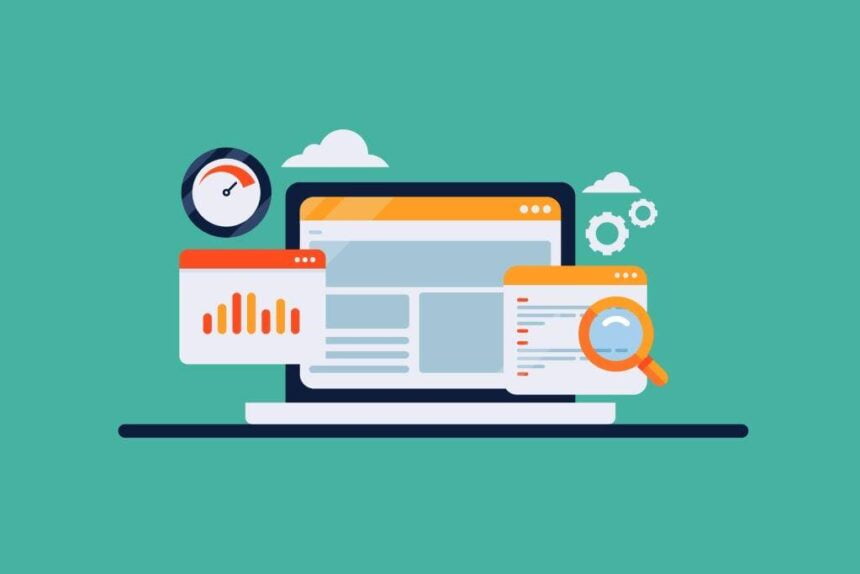AI barely played a role in the beginning of online search engines. The earliest search engines accepted payments from companies that wanted to be at the top of the listings. However, AI is becoming more important than ever.
Google is using AI to assign SERPs more than ever. Savvy SEO strategists are also using AI too. AI is also important in local SEO, because businesses need to know how to automate essential functions and identify approaches that get the best results.
How AI is Central to Modern SEO
Search Engine Journal has discussed the role of AI in modern SEO. They said that AI has the following five benefits:
- AI helps optimize keywords better
- AI uses cluster analytics and predictive analytics to audit pages and identify search terms that will be popular in the future
- AI helps leverage customer reviews
- AI predicts customer needs
- AI drives customers to sales with better engagement
All of these AI factors directly or indirectly help with SEO. You should know how to use AI to build an SEO strategy for a local business.
Creating a Local SEO Strategy with AI
Nearly everyone searches Google to find a local business or services near them. In fact, nearly 50% of all Google searches are for local business information. While SEO professionals know the importance of incorporating organic SEO services that utilize AI into their marketing plan, especially to businesses with a physical location, there are still a lot of small businesses who do not include local SEO tactics in their marketing plan.
Create a Google My Business listing.
AI can help you make a Google My Business listing more quickly. Google My Business is a free tool for businesses and organizations to help establish and manage a business’s web presence across Google. GMB connects your business with customers.
Go to Google My Business and claim your GMB page. If you haven’t done this already, Google will send you a verification code for your address. You will take that code and follow Google’s instructions to enter the code into Google My Business so that Google can verify your business, which can take 1-2 weeks. You can use AI to make sure everything is done properly, which expedites things.
After you have verified your Google My Business you will then need to:
- Ensure your name, address, and phone info is correct
- Select the right category for your business
- Complete your business’ description
- Add your hours of operation
- Upload hi-res images
- Ask your customers/clients to write reviews for your business
Make Sure Your NAP is consistent across all platforms.
Your name, address, and phone number should be the same no matter which page of your website or other social platform your business is on. Check your Contact Us page, Home page, Footer, and social media platforms. You can use AI to identify inconsistencies and rectify them.
Use a Google Map on your website.
AI has improved user engagement, which includes offering Google Maps. Having a Google map on your website for your physical location is a given. You want visitors to be able to find you. Embedding a Google Map onto your website is a simple tactic that a local SEO company would likely use.
Use Geotags to share your location with search engines.
AI also has made geotags possible. Geo tags assign a geographical location to a photo, video, website, and social media posts. Use geotags on your specific location websites. They let search engines where you are and help improve your local business search ranking. You can use a Geo Tag Generator and place it on each page of your website.
Use schema markups.
Schema markups help search engines better understand the content on your website so that your business will appear in more relevant local searches. You can use schema markups for NAP, events, specific categories and more. You can use a Schema Markup Generator or (JSON-LD).
Optimize your website and meta tags for local keywords.
You can boost your clickthrough rates by including your business’ city and state in your meta description tags on your website, page content, logo, and images.
If you have multiple locations, create a separate web page for each of them.
If you have more than one physical location, create a separate web page for each location. You can create a specific subdomain for your various locations. You want to make sure that the content for each location’s website is unique. You could include content like:
- Testimonials from clients specific to the location the website is for
- Highlight services or products that you offer in one location that are not available in your other locations
- Create a location specific blog, making sure you use alt tags for images and videos.
Submit your website to local directories.
You want your business to be listed in as many online directories as possible. You can use a tool like Yext to find many, if not most, of the locations of your existing citations and update your info so that your NAP is consistent across all business listings. If you have multiple locations, you want to make sure your location-based subdomain corresponds with the right location.
Gather as many reviews from customers and clients as possible.
Customer reviews from credible review sites like Yelp, Google My Business, and Facebook can have a positive impact on your Google local search rankings.
Update your business’ social media profiles with your location.
Your business’s location should be on every single social media platform that your business uses. You should always include your contact information so that potential customers and clients know how to reach or where to go. Make sure the information you provide on your social media pages is consistent with the information on your website. Having active social media channels could have a huge impact on your local rankings because it’s a sign that your business is credible.
If you still don’t feel confident in handling your local SEO marketing on your own, seek help from one a top tier internet marketing company who offers affordable SEO services with more than ten years’ experience and hundreds of satisfied customers.
AI is Central to Local SEO in 2019
SEO is evolving at breakneck speeds. AI has played a dominant role in the trend.











